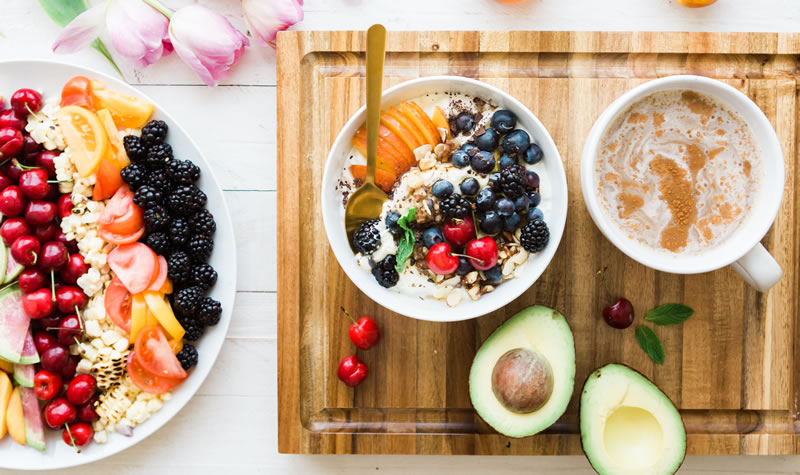Eating Better

Anti-cancer foods can bring lifelong, positive change
Contributed by Nancy Burke, R.D., Danielle Karsies, M.S., R.D., and Melissa Shannon-Hagen, R.D., CSO, U-M Rogel Cancer Center Symptom Management and Supportive Care Program
Cancer changes a person’s life and the shock of a diagnosis can bring feelings of losing control.
Getting the right nutrition, however, is something you can control during this difficult time. This is not to say that eating doesn’t come with challenges during cancer treatment. It can be very difficult to eat when food doesn’t taste good or if you have side effects like nausea or diarrhea.
But, most side effects are temporary and patients get to choose how to fuel their bodies. Think of food as fuel during cancer treatment. It’s going to get you through the beginning to the end of treatment.
How we choose to nourish our bodies is a way patients can gain some control back.
And, the silver lining of an anti-cancer diet is that sticking to it for the long term can reduce your risk of recurrence, as well as many other chronic diseases.
Here are tips to give your body the best chance to respond to treatment, nutritionally speaking:
1. Start by getting enough calories and protein to maintain your weight
2. This is not a time to make drastic dietary changes
3. Add fruits, vegetables, whole grains, legumes and beans to your plate
4. Avoid sugary beverages and calorie-dense junk food
5. Reduce red meat to less than 18 oz. per week
After cancer treatment, stick to the plate method, which includes on your plate:
- 1/4 protein rich foods
- 1/4 whole grain foods
- 1/2 fruits and vegetables
Treatment for any chronic disease -- from cancer to heart disease to diabetes -- follows similar nutritional guidelines. Sticking to these healthy eating habits puts you on the path for better health.
Read the Fall, 2017 issue of Thrive.
